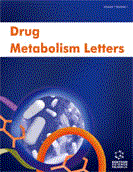Abstract
The extracts from the root of Salvia miltiorrhiza are widely used in the treatment of angina and stroke. In this study, we have investigated the role of P-glycoprotein (P-gp) in the transport of tanshinone I (TSI), a major active constituent of S. miltiorrhiza. The TSI transport across Caco-2 monolayers was pH-, energy-, and temperature-dependent, but not sodium-dependent. TSI exhibited a polarized transport in Caco-2 monolayers which was attenuated by P-gp inhibitors. The permeability (Papp) values of TSI in the basolateral to apical direction were significantly higher in MDCK-II cells over-expressing MDR1, as compared to the wild-type control cells. Furthermore, TSI significantly inhibited the transport of digoxin in Caco-2 cells with an IC50 value of 0.53 ± 0.09 μM. TSI also moderately stimulated P-gp ATPase activity with Km and Vmax values of 31.70 ± 7.09 μM and 57.71 ± 5.26 nmol/min/mg protein, respectively. Our findings indicate that TSI is a substrate and inhibitor of Pgp, which has important clinical and toxicological implications.
Keywords: P-glycoprotein, tanshinone IIB, intestinal absorption, multidrug resistance associated protein 1, Tanshinone I, Pglycoprotein, Caco-2, Permeability
 7
7














